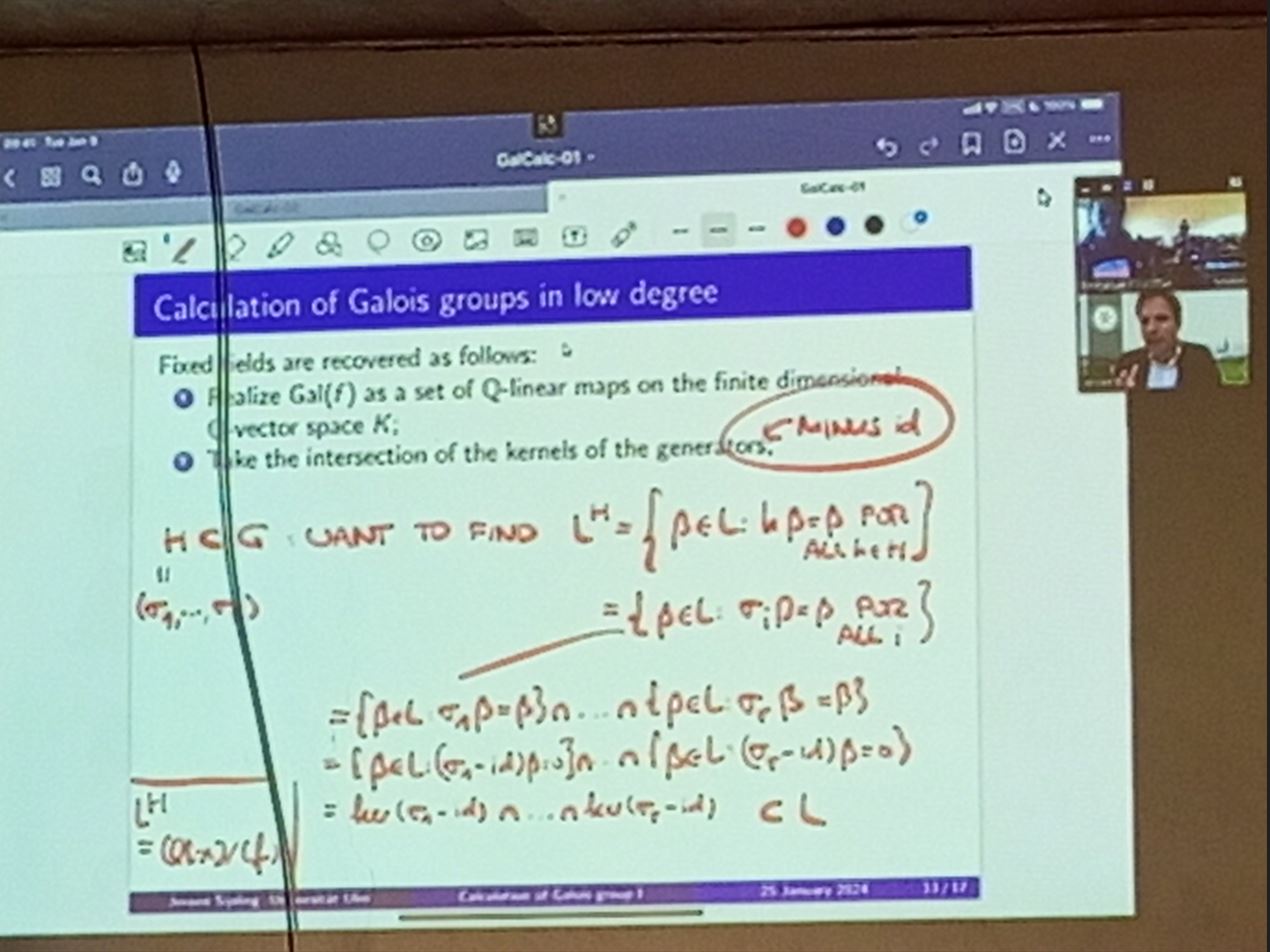Calculation of Galois Groups in Low Degree
- 25 Jan, 2024 - 26 Jan, 2024
- 26 Jan, 2024
- Cameroon, Bamenda

Event Description
On January 25th and 26th, 2024, Professor Jeroen SIJSLING from the Institute of Algebra and Number Theory at ULM University in Germany conducted a seminar with the students of the Centre of Cybersecurity and Mathematical Cryptology at the University of Bamenda. The seminar focused on the specialty areas of Algebra, Coding Theory, Cryptology, and Cybersecurity. Specifically, Professor SIJSLING presented two seminars on the Calculation of Galois group in low degree polynomials, which is a well-known and highly significant topic in cryptology.
In the field of cryptography, the calculation of the Galois group for low-degree polynomials holds importance in various cryptographic schemes, particularly those based on algebraic structures. There are several ways in which the calculation of the Galois group can be relevant in cryptology:
1. Cryptographic Protocols: The Galois group plays a role in analyzing the security of cryptographic protocols, such as key exchange or secure multi-party computation protocols. These protocols often involve computations over finite fields, and the properties of low-degree polynomials can impact the security analysis of such protocols.
2. Polynomial Selection: In some cryptographic algorithms, such as certain lattice-based schemes or error-correcting codes, the selection of polynomials plays a crucial role. The Galois group of a low-degree polynomial can provide insights into its algebraic properties, such as irreducibility, factorization, or the presence of roots with certain properties. These properties are essential for the security and efficiency of cryptographic algorithms, and the calculation of the Galois group can help in the selection of suitable polynomials.
3. Cryptanalysis: The calculation of Galois groups for low-degree polynomials can aid in cryptanalysis, especially in attacks based on algebraic techniques. Algebraic attacks exploit the algebraic structure of cryptographic algorithms to recover secret information or break their security. By calculating the Galois group associated with the equations used in a cryptographic algorithm, cryptanalysts can analyze the algebraic structure, identify vulnerabilities, and develop more efficient attacks.
4. Algorithm Design: The Galois group of low-degree polynomials or field extensions can also play a role in the design of cryptographic algorithms. By understanding the algebraic structure and properties of the Galois group, researchers can develop new algorithms that leverage these properties to achieve desired cryptographic properties, such as resistance against specific attacks or efficient implementation on certain hardware platforms.
5. Implementation Efficiency: The Galois group of low-degree polynomials can also impact the efficiency of cryptographic implementations. By studying the algebraic properties of the Galois group, researchers can develop algorithms and techniques that exploit these properties to optimize the implementation of cryptographic operations, such as encryption, decryption, or signature verification.
It is important to note that while the Galois group of low-degree polynomials can have implications in specific cryptographic contexts, the field of cryptography is extensive and encompasses a wide range of techniques and algorithms. The significance of the Galois group in cryptology may vary depending on the specific cryptographic scheme or protocol under consideration.